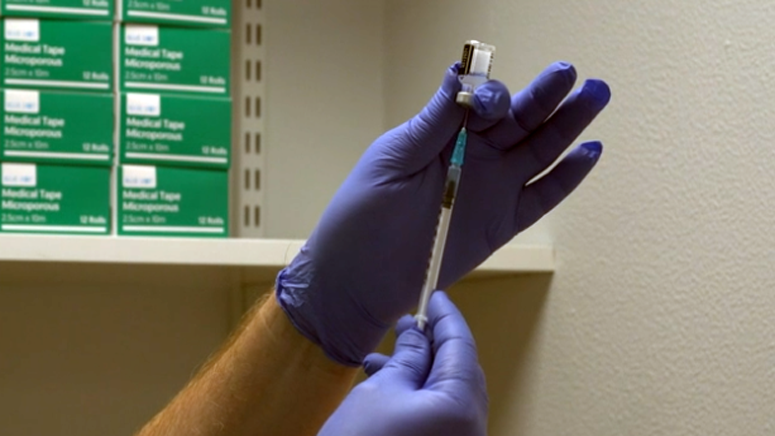Connecticut is poised to end long-standing religious exemption from immunization requirements for schools, a move that led to protests outside the state Capitol where people are trying to sop final legislative passage of one of the most contentious bills of the session.
If the bill clears the Democratic-controlled Senate, as expected, Democratic Gov. Ned Lamont has said he will sign it into law. Connecticut would then become the sixth state to end its religious exemption. The state’s medical exemption would remain in place.
Proponents contend the legislation, which was amended in the House of Representatives to grandfather in any students with an existing religious exemption beginning with kindergarteners, is needed. They cited a slow and steady increase in the number of religious exemptions for childhood vaccinations in Connecticut and declining vaccination rates in some schools.
The legislation, which includes public and private schools, higher education, daycare and child care centers, would take effect with the 2022-23 school year.
“Why this bill now? It is our obligation to protect the public health,” said Sen. Mary Daugherty Abrams, D-Meriden, co-chair of the Public Health Committee.
The debate, which comes less than a week after the state Department of Public Health confirmed a second case of measles in a child living in Fairfield County, was expected to be lengthy. Debate in the House of Representatives, where the same bill passed 90-53, lasted more than 16 hours.
State police said about 2,000 to 3,000 protesters gathered Tuesday outside for the Senate session — the second large-scale protest this session against efforts to end the exemption.
Many opponents argue the bill is unnecessary, discriminatory and an infringement on their religious liberties and parental rights.
At times during the Senate debate, shouts and chants from the crowd could be heard inside the marble and granite Capitol building, which is closed to the public because of COVID-19 safety protocols.
Some Republicans urged their colleagues to heed what the protesters, which include both parents with concerns about vaccine safety and religious liberty advocates, have to say.
“Are we not listening to the people?” asked Sen. Tony Hwang, R-Fairfield, who contends parents, not the state of Connecticut, should decide whether their child should be vaccinated. “All you need to do is look outside this building today and look at the gathering of people who have exercised their constitutional right to gather peacefully, to have their voices be heard.”
If the bill becomes law, critics have said they intend to challenge it in court.
unnecessary, an overreach by state government, and an attempt to impede the religious liberties of potentially thousands of children.
(Copyright (c) 2024 The Associated Press. All Rights Reserved. This material may not be published, broadcast, rewritten, or redistributed.)

